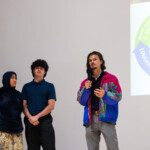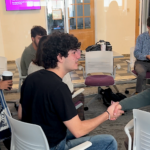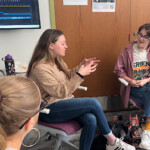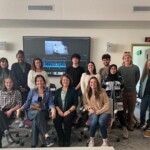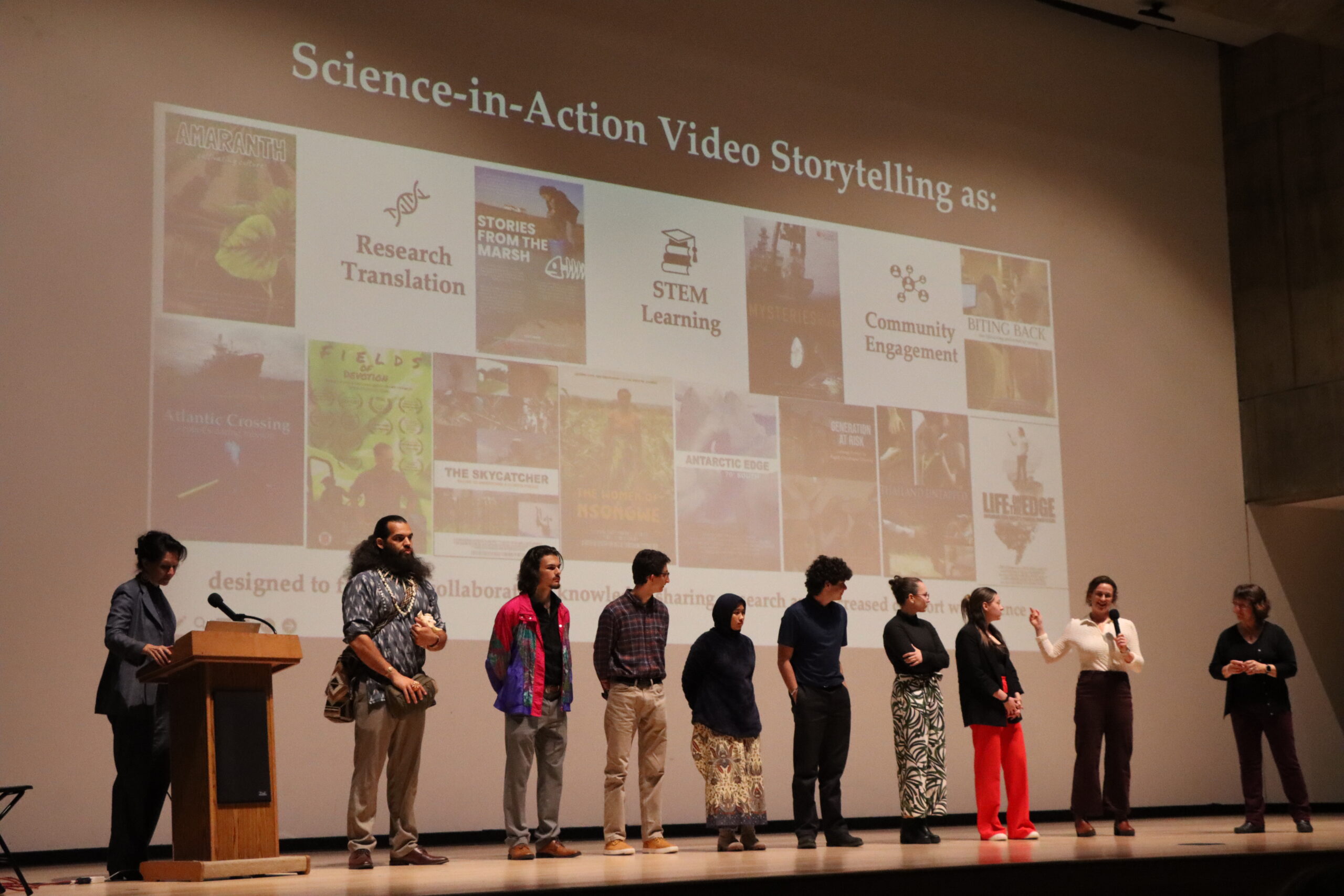
Rutgers science storytellers and their science-in-action videos took a road trip to share their work as featured guests of the Environmental Storytelling Series in Syracuse, NY, on September 26-27. This series was organized jointly by the State University of New York’s College of Environmental Science and Forestry’s (SUNY ESF) Writing, Rhetoric, and Communications Program and Syracuse University (SU)’s Engaged Humanities Network (EHN).
Dr. Brice Nordquist, director of the EHN, welcomed the Rutgers team. “We are so inspired by the Rutgers storytellers’ methodology and story products, and especially by the trusting relationships you successfully build between students, scientists and community stakeholders,” said Nordquist.
Five undergraduate and three graduate students from a variety of majors, along with food systems research, Dena Seidel, and associate teaching professor Dr. Xenia Morin, led an interactive community evening event that showcased several recorded stories at the Everson Museum of Art. This was followed the next morning by storytelling workshops, “Making Visible: Co-creating Science Stories for Environmental Action,” at SUNY ESF with students and faculty.
An accompanying learning guide providing an overview of scientific communication and food justice discussion points prepared by SUNY ESF and SU students served as community engagement tools.
At the museum event, excerpts from eight science films were shared based on four thematic sections, each followed by a question for the audience. The first theme, Farmers, Food Producers and Everyday Folks film stories were followed by “Have you ever thought of a Farmer as a Hero?”
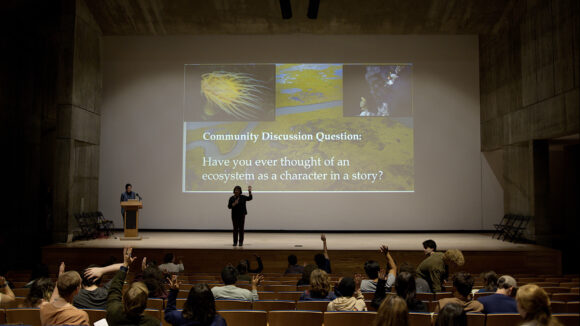
Associate Teaching Professor Dr. Xenia Morin led the community question and answer portions of Rutgers storytelling presentation.
The second theme looked at ecosystems. “The Big Picture: Seeing our Food as Part of Ecosystems” asked the audience, “Have you ever thought of an ecosystem as a character in a story?” with Morin leading the audience Q&A engagement. Colby Koutrakos, Rutgers sophomore majoring in Ecology, shared a scene he prepared about chemosynthetic microbes supporting ecosystems at deep sea hydrothermal vents featuring the research of Rutgers Professor Costa Vetriani and part of the developing long form science film Mysteries of 9° North. Ecology graduate student Shaniya Utami then shared a scene featuring Rutgers marine scientist Thomas Grothues explaining the history of a New Jersey fish factory that collapsed due to overharvesting as part of the 30-minute Stories from the Marsh, which is also in development. Shaniya’s work includes science-in-action footage of the Mullica River Great Bay estuary shot by SAS Philosophy sophomore Ben Lerner who shared that he is able to join science teams and experience first-hand the process of environmental field research through this interdisciplinary storytelling model.
The third theme, “Connecting to Food Through Culture,” featured an excerpt from the short film, “Traditional Roots,” by high school students participating in the USDA-funded FAME (Food, Agriculture and Marine Ecosystems) after-school program that included Ph.D. student Guazabara Rivera describing his Caribbean culture’s relationship with ginger. Next, Erin Quinn, who was recently accepted into Rutgers’ Plant Biology Ph.D. program, shared a story about breadfruit farmers in the Federated States of Micronesia made from science video data collected during Rutgers’ international development projects in that country. Quinn shared that she learned so much working with the video footage of Micronesian breadfruit farmers that she has decided to focus her Ph.D. plant breeding research on strengthening this important Pacific Island crop impacted by climate change.
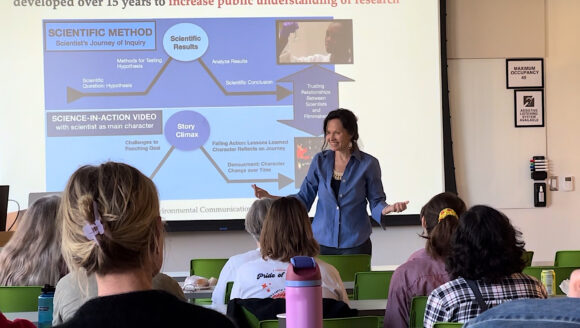
Dena Seidel leads a workshop on creating trusting partnerships for science-in-action storytelling.
The fourth theme, “Science, Food Systems and Public Health,” included the short science film, Cultivating Culture, about Rutgers plant breeding for New Jersey communities and their culturally preferred foods, based on research led by Dr. Jim Simon, Dr. Ramu Govindasamy and Dr. Albert Ayeni, and featuring Ph.D. student Tori Rosen, who communicate this research to the audience. Junior Or Doni, Biological Sciences minor at Rutgers School of Arts and Sciences, and Emily Schneider, senior Biochemical Engineering student with a joint major in Agriculture and Food Systems, shared their short science film about plant scientists and entomologists working together to develop a natural insect repellent that protects against insect borne diseases. They shared their commitment to both the science and the featured scientists who inspired them to work for a full year making their story for peer and public audiences.
On September 27, Dena Seidel led a workshop for SU and SUNY ESF faculty while the Rutgers students shared their storytelling process with local Syracuse undergraduates. Together, they discussed the ways storytelling can be used to communicate environmental science and promote positive environmental action.
Rutgers junior Or Doni said of the experience, “When we present our science storytelling to peers, it allows us to share in the feeling that we are part of a science process that is larger than any one of us.”
SUNY ESF Professor Dorholt added, “It was truly exciting to bring our students together and see how much they share and learn from each other. We are already imagining ways we can continue to work together for the benefit of our students and the greater common good.”

